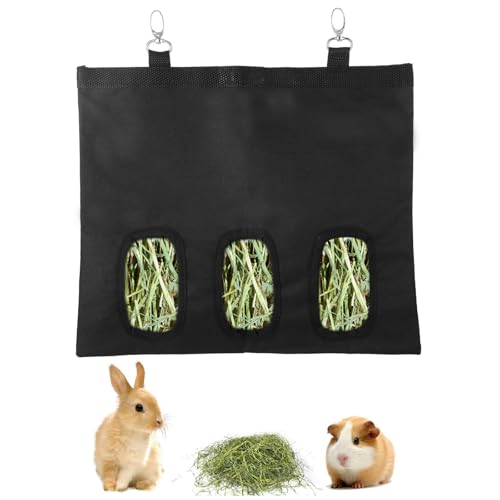SatinsRule
Well-known member
I know everyone on here is pretty much in concert with using timothy hay when it's available above pretty much everything else, but I have a question.
I've located a hay dealer in southern Missouri near the AR line who periodically has timothy hay that's mixed with clover. He gets is from central TN, and he's expecting his next loads to arrive in late May.
As many of you may have guessed, it is not the timothy part of the equation I'm worried about, but rather the clover content that I have questions about. I cannot imagine it being particularly bad, but...
What are the goods and bads I can expect from it if/when I commit to buying it? If I continue asking more direct questions after responses are posted, it's because I'm trying to learn something, not arguing, and I sure don't want to buy a half dozen or so bales of it, only to find out that it's not good for feeding to rabbits, then be faced with disposing of it.
Thanks in advance.
I've located a hay dealer in southern Missouri near the AR line who periodically has timothy hay that's mixed with clover. He gets is from central TN, and he's expecting his next loads to arrive in late May.
As many of you may have guessed, it is not the timothy part of the equation I'm worried about, but rather the clover content that I have questions about. I cannot imagine it being particularly bad, but...
What are the goods and bads I can expect from it if/when I commit to buying it? If I continue asking more direct questions after responses are posted, it's because I'm trying to learn something, not arguing, and I sure don't want to buy a half dozen or so bales of it, only to find out that it's not good for feeding to rabbits, then be faced with disposing of it.
Thanks in advance.













![FHQHTH Faux Rabbit Fur Purse Fuzzy Handbags for Women Evening Handbags Al alloy Shoulder Strap [Rabbit Red]](https://m.media-amazon.com/images/I/41l5Hd2qrhL._SL500_.jpg)


















